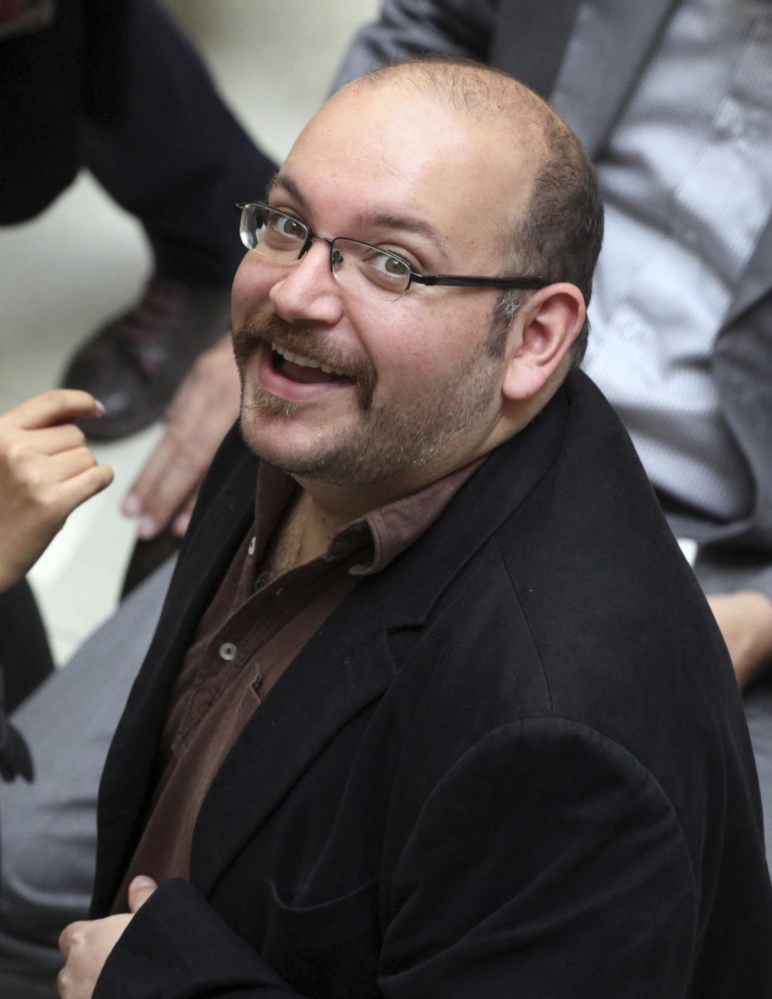TEHRAN, Iran — An Iranian security court on Tuesday began the closed-door espionage trial of an Iranian-American reporter for The Washington Post who has been detained for more than 10 months.
Jason Rezaian, the Post’s 39-year-old bureau chief in Tehran, is being tried in a Revolutionary Court on allegations of “espionage for the hostile government of the United States” and propaganda against the Islamic Republic, Iran’s official IRNA news agency reported.
The Post has said Rezaian faces from 10 to 20 years in prison if convicted.
Rezaian, his wife Yeganeh Salehi and two photojournalists were detained on July 22 in Tehran. All were later released except Rezaian, who was born and spent most of his life in the United States, and who holds both American and Iranian citizenship. Iran does not recognize other nationalities for its citizens.
Salehi, wearing a black Islamic veil, refused to talk as she left the courthouse after the hearing Tuesday. She covered her face with the scarf as she departed in a yellow taxi, sitting next to an older woman. The Post later reported Rezaian’s mother, Mary Rezaian, had accompanied her to court, but also could not attend.
Last week, Rezaian’s lawyer said Salehi, who is a reporter for The National newspaper in the United Arab Emirates capital of Abu Dhabi, and a freelance photographer who worked for foreign media, also will stand trial. The photographer’s name has not been made public.
The Post and U.S. diplomats have criticized Rezaian’s detention and the handling of the case. Salehi has been barred from traveling abroad, the Post said, adding that its requests for a visa for a senior editor to travel to Iran went unanswered.
“There is no justice in this system, not an ounce of it, and yet the fate of a good, innocent man hangs in the balance,” Washington Post Executive Editor Martin Baron said in a statement. “Iran is making a statement about its values in its disgraceful treatment of our colleague, and it can only horrify the world community.”
Ali Rezaian said he believed Iranian authorities had two main documents they were using at his brother’s trial.
One was a form letter Rezaian submitted online in 2008 after the election of U.S. President Obama, offering to help “break down barriers” between America and Iran, his brother said. The other was an American visa application he filled out for his wife that asked for it to be expedited at the time because of a looming Iranian election, noting “sometimes it’s not the best place to be as a journalist,” his brother said.
U.S. officials repeatedly have pressed Iran to release Rezaian and other jailed Americans, including during talks on the sidelines of negotiations over Tehran’s contested nuclear program.
The judge assigned to hear Rezaian’s case, Abolghassem Salavati, is known for his tough sentencing.
Send questions/comments to the editors.



Success. Please wait for the page to reload. If the page does not reload within 5 seconds, please refresh the page.
Enter your email and password to access comments.
Hi, to comment on stories you must . This profile is in addition to your subscription and website login.
Already have a commenting profile? .
Invalid username/password.
Please check your email to confirm and complete your registration.
Only subscribers are eligible to post comments. Please subscribe or login first for digital access. Here’s why.
Use the form below to reset your password. When you've submitted your account email, we will send an email with a reset code.